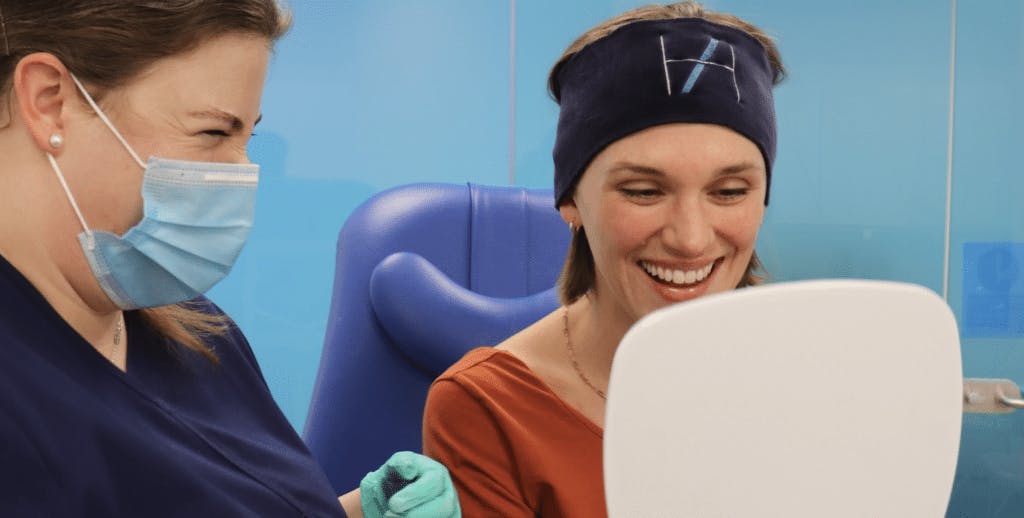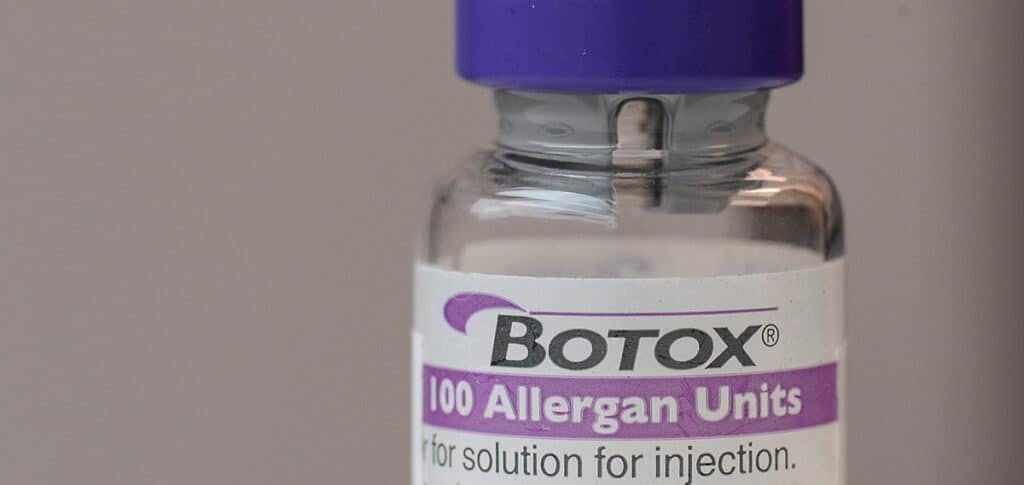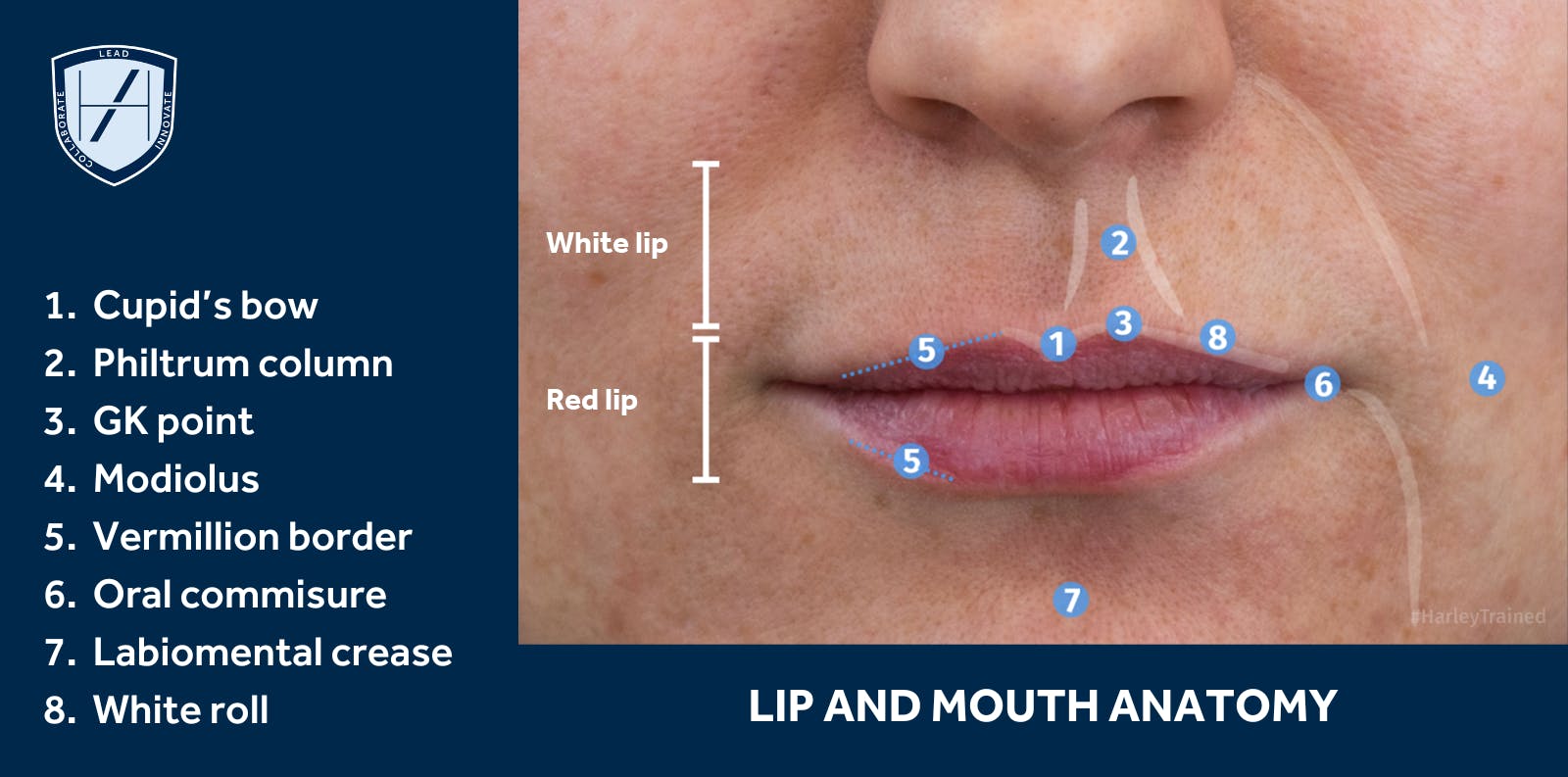What is a Lip Flip and How Do You Perform This Treatment?

The Lip Flip is one of a number of injectable lip treatments that has become ‘trendy’ in the past few years. But what is a Lip Flip? And is it worthwhile?
Recent media stories talk of 'botched' outcomes, leaving patients with undesirable results that negatively affect their smile. So how can this happen and how can you ensure you're administering this botox treatment safely and efficiently?
We spoke to aesthetics experts and Harley Academy faculty members, Dr Mariam Michail and Dr Kalpna Pindolia, who explained all…

What is a Lip Flip and who is it suitable for?
"A Lip Flip procedure refers to the use of botulinum toxin type A to relax the muscle above the upper lip (orbicularis oris). Neuromodulation here allows the lip to relax and 'flip outwards', thus allowing the upper lip to appear fuller without the use of dermal filler," Dr Mariam told us.
What’s the difference between a Lip Flip and lip filler?
She noted, "The difference in outcome is that the Lip Flip increases the amount of top lip that is visible whilst lip filler increases volume. Lip Flips involve the use of botulinum toxin type A in the muscle. This essentially increases the amount of top lip on show. However, lip fillers generally use hyaluronic acid gels to improve lip volume, enhance lip shape and provide hydration to the lips."
Where do you inject botox for a Lip Flip?
"Generally, four injection points of 1 unit each, are used," confirms Dr Mariam. "The injections are superficial, above the vermillion border of the upper lip, in the white lip. Four evenly spaced injection points along the lip are required. As with all botulinum toxin treatments, treatment results can be reviewed at 2-4 weeks and adjusted accordingly."
This treatment can be quite a controversial among injectors. What's your personal opinion on it?
"Lip Flip procedures work well when used for the correct patient," advises Dr Mariam. "It’s a good option for patients who have lips that 'curl inwards' when smiling and wish to have a slight increase in lip volume, without the use of dermal filler. However, it’s important that reasonable expectations are set."
How long do Lip Flip results last?
"Treatments with toxin generally don’t last as long as filler treatments," she cautions. "Lip Flip results last around 8-12 weeks which is less than fillers so patients must be made aware of this. For more noticeable changes in lip shape and volume, lip filler remains their best option."

Lip Flip complications
We asked Dr Kalpna Pindolia, Harley Academy's Director of Clinical Education, about the recent concerns regarding Lip Flip complications. These have received a lot of press attention recently since the singer, Meghan Trainor, spoke about her regret and lack of smile from "too much Botox" during a podcast.
She said, "I got too much Botox, and I need help... Someone convinced me with my little lips that if you did a lip flip, you put filler right above your upper lip, that you could have a beautiful flip on your upper lip... it was not true.'
Trainor added, "I cannot smile anymore... My face hurts to smile, to even try" and demonstrated how her range of movement has been limited.
Whilst we have not examined or treated Ms Trainor, we wondered what could have gone wrong, here? We turned to Dr Kal for answers and she first outlined the treatment as a reminder:
"A Lip Flip uses precise placement of a small amount of botulinum toxin off-licence, just outside the lips - the vermillion border and Cupid's bow - to relax the orbicularis oris muscle of the lip," said Dr Kal.
"This causes the lip to 'flip' or roll slightly upwards, creating the illusion of a fuller, everted lip without adding any actual volume. It's a short term, subtle way of managing the lip aesthetic.
"It's more suitable for patients who have lips that 'curl inwards' when smiling.
What are the possible Lip Flip complications that can affect the smile?
"Over-treating the area can limit the ability to move your lips normally," cautioned Dr Kal. "For example, there will be less strength in puckering the lips if wanting to whistle, spit after brushing your teeth, smoke a cigarette, pronounce certain words or use a straw.
"It'll also impact the smile aesthetic, as the muscles will move in a different manner than usual. So, people close to you, who see you everyday, may notice a difference when you are smiling or talking."
How do aesthetic practitioners avoid this?
"It's best to use small amounts of toxin and add more after a clinical assessment at 2-4 weeks," she advises. "This is preferable, rather than using too much toxin in one go, due to the potential negative effects to your patient in performing daily lip functions."
"Patient selection is also crucial. If your patient sings, talks or uses musical instruments for a living, they may opt against this treatment as it will affect their work. Ensure you discuss the potential limitations during your clinical consultation so they can make an informed decision prior to treatment."

Learning Lip Flip techniques
For anyone wishing to learn how to administer a Lip Flip safely and effectively, we have a couple of options. However, we do not currently offer practical Lip Flip training.
Lip Flip treatments are covered on a theory-only basis in our Perioral & Lip Filler Masterclass. There is no practical Lip Flip training conducted during this short aesthetics course.
Trainees taking our Level 7 Diploma in Cosmetic Injectables course can ask their mentors to demonstrate the Lip Flip technique. However, it's not formally covered as part of the curriculum, nor does it form part of your qualification.
Please note that we do not recommend offering treatments without having dedicated training in them. You should also check with your insurance company as to whether your coverage allows you to administer such treatments without specific practical training.
All information correct at the time of publication
Download our full prospectus
Browse all our injectables, dermal fillers and cosmetic dermatology courses in one document
By submitting this form, you agree to receive marketing about our products, events, promotions and exclusive content. Consent is not a condition of purchase, and no purchase is necessary. Message frequency varies. View our Privacy Policy and Terms & Conditions
Attend our FREE open evening
If you're not sure which course is right for you, let us help
Join us online or in-person at our free open evening to learn more
Our Partners













STAY INFORMED
Sign up to receive industry news, careers advice, special offers and information on Harley Academy courses and services

